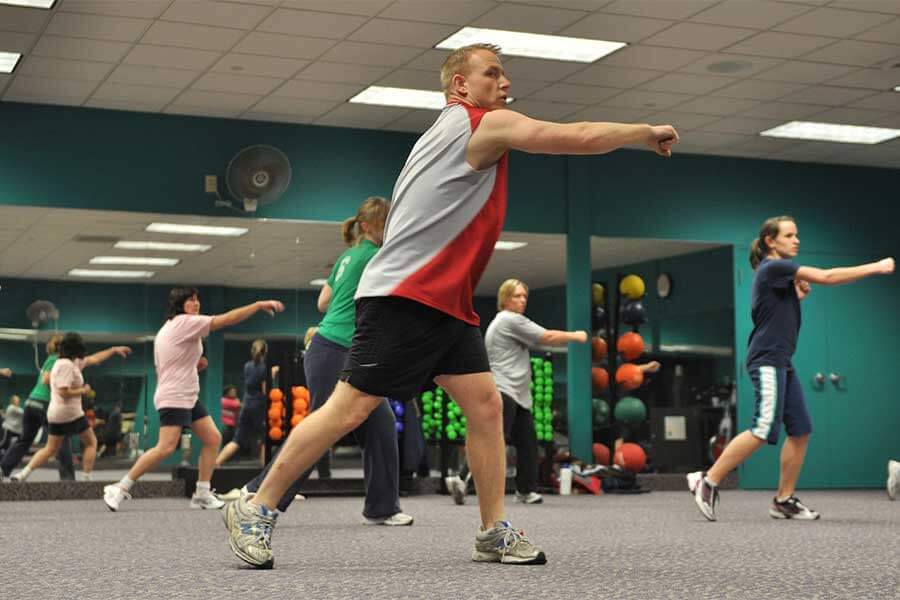
In today’s fast-paced world, health and wellness have become crucial aspects of leading a fulfilling life. With increasing stress levels, sedentary lifestyles, and modern-day challenges, prioritizing one’s well-being has never been more critical. This article will explore the significance of health and wellness, various approaches to achieve them, and how they can positively impact our lives.
Nutrition and Balanced Diet: Nourishing Your Body for Optimal Health
Fuel your body with essential nutrients and achieve overall well-being with these insights on designing a balanced meal plan, healthy snacks, the benefits of plant-based diets, and understanding portion control for weight management.
Essential Nutrients for Overall Well-being
Discover the key nutrients that your body needs for optimal health:
Proteins: Build and repair tissues, support immune function, and act as enzymes and hormones.
Carbohydrates: Provide energy for daily activities and fuel for the brain and muscles.
Fats: Essential for absorbing certain vitamins, protecting organs, and maintaining cell health.
Vitamins: Support various bodily functions and help prevent deficiencies and health issues.
Minerals: Regulate body processes, maintain fluid balance, and support bone health.
Designing a Balanced Meal Plan for Different Lifestyles
Create a personalized meal plan that suits your lifestyle and health goals:
Balancing Macronutrients: Ensure a mix of proteins, carbohydrates, and healthy fats in each meal.
Incorporating Whole Foods: Opt for whole grains, fresh fruits, vegetables, and lean proteins for nutrient-rich meals.
Meal Prepping: Save time and effort by planning and preparing meals ahead of time.
Adapting for Dietary Restrictions: Modify the meal plan to accommodate specific dietary needs or allergies.
Healthy Snacks to Satisfy Cravings and Boost Energy
Keep your energy levels up and curb cravings with nutritious snacks:
Nuts and Seeds: Packed with healthy fats, protein, and fiber for a satisfying and nourishing snack.
Greek Yogurt: High in protein and probiotics, promoting gut health and providing a creamy treat.
Fruits and Veggies: Choose fresh or dried fruits and veggies for a nutrient-rich and low-calorie snack.
Whole Grain Crackers with Hummus: A balanced combination of carbohydrates and protein for sustained energy.
Plant-Based Diets and Their Benefits
Explore the advantages of adopting a plant-based diet:
Rich in Nutrients: Plant-based diets are often abundant in vitamins, minerals, and antioxidants.
Heart Health: Studies show that plant-based diets may lower the risk of heart disease and promote cardiovascular health.
Sustainable and Environmentally Friendly: Plant-based diets have a lower environmental impact compared to animal-based diets.
Weight Management: Many people find that plant-based diets can support weight loss and weight maintenance.

Understanding Portion Control for Weight Management
Maintain a healthy weight with mindful portion control:
Mindful Eating: Pay attention to hunger cues and stop eating when you’re comfortably full.
Use Smaller Plates: Opt for smaller plates and bowls to prevent overeating.
Pre-Portion Snacks: Divide large snacks into smaller portions to avoid mindless munching.
Focus on Nutrient-Dense Foods: Choose nutrient-dense foods to feel satisfied with smaller quantities.
Nourishing your body with a balanced diet rich in essential nutrients is crucial for overall health and well-being. By designing a meal plan that suits your lifestyle, incorporating healthy snacks, considering plant-based options, and practicing portion control, you can achieve a nourished and healthy body. Remember, small changes in your eating habits can lead to significant improvements in your overall health and vitality.
Fitness and Exercise Routines: A Path to a Stronger You
Elevate your fitness journey with effective home workouts for busy individuals, exercises tailored to your fitness goals, the significance of consistent training for strength and endurance, methods to enhance flexibility and posture, and the crucial role of rest and recovery in achieving peak fitness.
Effective Home Workouts for Busy Individuals
Maximize your time with efficient home workouts suitable for busy schedules:
HIIT (High-Intensity Interval Training): Short bursts of intense exercises followed by brief rest periods for an efficient full-body workout.
Bodyweight Exercises: Utilize your body weight for exercises like squats, push-ups, and planks, requiring minimal equipment.
Tabata: Four-minute workout sessions comprising 20 seconds of exercise followed by 10 seconds of rest, repeated eight times.
Circuit Training: Create a circuit of different exercises, performing each for a set amount of time, with minimal rest in between.
Choosing the Right Exercise for Your Fitness Goals
Tailor your exercise routine to achieve your specific fitness objectives:
Strength Training: Focus on resistance exercises like weightlifting to build muscle and increase overall strength.
Cardiovascular Training: Engage in activities like running, cycling, or swimming to improve cardiovascular endurance.
Flexibility and Mobility: Incorporate exercises like yoga or Pilates to enhance flexibility and improve range of motion.
Functional Training: Perform exercises that mimic real-life movements to improve everyday functionality and prevent injuries.
Building Strength and Endurance Through Consistent Training
Consistency is key to developing strength and endurance:
Progressive Overload: Gradually increase the intensity or resistance of your workouts to challenge your muscles and improve performance.
Regular Schedule: Establish a workout routine that you can realistically maintain, ensuring regularity in your training.
Tracking Progress: Keep a record of your workouts to monitor improvements in strength and endurance over time.
Rest Days: Incorporate rest days into your routine to allow muscles to recover and prevent overtraining.

Exercises for Improving Flexibility and Posture
Enhance flexibility and posture through targeted exercises:
Dynamic Stretching: Perform dynamic stretches that involve moving parts of your body through a full range of motion.
Static Stretching: Hold stretches for specific muscle groups to increase flexibility and reduce muscle tension.
Posture Exercises: Strengthen muscles that support proper posture, like the core and back muscles.
Foam Rolling: Use a foam roller to release muscle tightness and improve flexibility.
The Importance of Rest and Recovery in Fitness
Prioritize rest and recovery for overall fitness and well-being:
Sleep Quality: Ensure adequate sleep to allow the body to repair and recharge.
Active Recovery: Engage in light activities like walking or swimming on rest days to promote blood flow and recovery.
Hydration: Stay hydrated to support proper bodily functions and aid in recovery.
Listen to Your Body: Pay attention to signs of fatigue or overtraining, and adjust your routine accordingly.
Embrace a well-rounded approach to fitness and exercise that suits your lifestyle and goals. By incorporating effective home workouts, aligning exercises with your fitness objectives, and valuing rest and recovery, you can embark on a transformative journey to a stronger, fitter, and healthier you.
Mental Health and Emotional Well-being: Nurturing Inner Harmony
Discover the keys to fostering mental health and emotional well-being, through practicing mindfulness for stress reduction, coping strategies for anxiety and depression, understanding the link between physical and mental health, building resilience during challenging times, and harnessing the power of gratitude to enhance overall well-being.
Practicing Mindfulness for Stress Reduction
Embrace mindfulness to cultivate inner peace and reduce stress:
Mindful Breathing: Focus on your breath, observing its rhythm and allowing yourself to be present in the moment.
Body Scan: Scan your body from head to toe, acknowledging any tension or discomfort, and letting it go.
Mindful Activities: Engage in everyday activities with full attention, savoring each experience without judgment.
Meditation Practice: Dedicate time to meditation, allowing your thoughts to come and go while maintaining a sense of calmness.
Coping Strategies for Anxiety and Depression
Empower yourself with effective coping mechanisms during challenging times:
Reach Out for Support: Talk to friends, family, or a mental health professional to share your feelings and experiences.
Mindful Movement: Engage in activities like yoga, walking, or dancing, which can help alleviate symptoms of anxiety and depression.
Journaling: Write down your thoughts and emotions as a way to release and gain clarity.
Positive Affirmations: Practice positive self-talk and affirmations to challenge negative thought patterns.
The Link Between Physical and Mental Health
Recognize the profound connection between physical and mental well-being:
Regular Exercise: Engage in physical activity to release endorphins and improve overall mood.
Nutritious Diet: Nourish your body with a balanced diet, supporting brain function and emotional regulation.
Sleep Hygiene: Prioritize restful sleep, as it is crucial for mental and emotional restoration.
Stress Management: Implement stress-reduction techniques to prevent physical and emotional strain.
The Power of Gratitude in Enhancing Well-being
Experience the transformative effects of practicing gratitude:
Gratitude Journal: Record three things you are grateful for each day to shift your focus to the positive aspects of life.
Expressing Appreciation: Express gratitude to others through kind words, gestures, or acts of kindness.
Mindful Gratitude: Savor and appreciate everyday experiences, no matter how simple or ordinary.
Cultivating Contentment: Embrace contentment by valuing what you have, rather than longing for what you don’t.
Prioritize mental health and emotional well-being by incorporating mindfulness, coping strategies, and resilience-building practices into your daily life. Recognize the interconnectedness of physical and mental health, and infuse your journey with the power of gratitude. Embrace a holistic approach to nurturing your inner harmony, promoting overall well-being, and cultivating emotional resilience in the face of life’s challenges.

Preventive Health Measures: Safeguarding Your Well-being
Prioritize your health and well-being through essential preventive measures, including regular health check-ups, age-appropriate vaccinations, screenings for early detection of common illnesses, heart health promotion through lifestyle choices, and understanding the significance of preventive medicine.
The Importance of Regular Health Check-ups
Stay proactive about your health with regular check-ups:
Comprehensive Evaluation: Health check-ups assess your overall health, including vital signs, blood tests, and physical examinations.
Early Detection: Regular screenings can help detect health issues at early stages, enabling timely intervention.
Risk Assessment: Physicians can assess your risk factors for various diseases, tailoring preventive measures accordingly.
Health Management: Health check-ups aid in managing chronic conditions and optimizing your well-being.
Vaccinations for Different Age Groups
Protect yourself and others through age-appropriate vaccinations:
Childhood Immunizations: Essential vaccines for infants and children to safeguard against infectious diseases.
Adult Vaccinations: Recommended vaccines for adults, including flu shots, tetanus boosters, and others based on specific risks.
Senior Vaccines: Vaccines that offer protection for seniors against illnesses like pneumonia and shingles.
Travel Vaccinations: Vaccinations required or recommended for travel to specific destinations.
Screenings and Early Detection of Common Illnesses
Catch health concerns early with regular screenings:
Cancer Screenings: Mammograms, Pap smears, and colonoscopies for the early detection of cancer.
Blood Pressure Checks: Monitoring blood pressure to identify hypertension and reduce cardiovascular risks.
Cholesterol Levels: Lipid profile tests to assess cholesterol levels and heart disease risk.
Diabetes Testing: Regular blood sugar monitoring for diabetes prevention and management.
Promoting Heart Health Through Lifestyle Choices
Prioritize heart health with lifestyle modifications:
Balanced Diet: Adopt a heart-healthy diet rich in fruits, vegetables, whole grains, and lean proteins.
Regular Exercise: Engage in regular physical activity to strengthen your heart and maintain a healthy weight.
Smoking Cessation: Quit smoking to significantly reduce the risk of heart disease.
Stress Management: Practice stress-reducing techniques like meditation and mindfulness.
Understanding the Role of Preventive Medicine
Embrace preventive medicine as a cornerstone of well-being:
Disease Prevention: Preventive medicine focuses on preventing illnesses before they occur.
Health Promotion: It emphasizes health education, lifestyle changes, and risk factor management.
Population Health: Preventive medicine benefits entire communities by reducing disease burden.
Cost-Effectiveness: Investing in prevention is often more cost-effective than treating advanced diseases.
Prioritize preventive health measures to protect your well-being and promote a healthier future. By staying proactive with regular health check-ups, age-appropriate vaccinations, screenings, and heart-healthy lifestyle choices, you can reduce health risks and enhance your overall quality of life. Understanding the significance of preventive medicine empowers you to take charge of your health, making informed decisions to safeguard your well-being and that of your loved ones.






